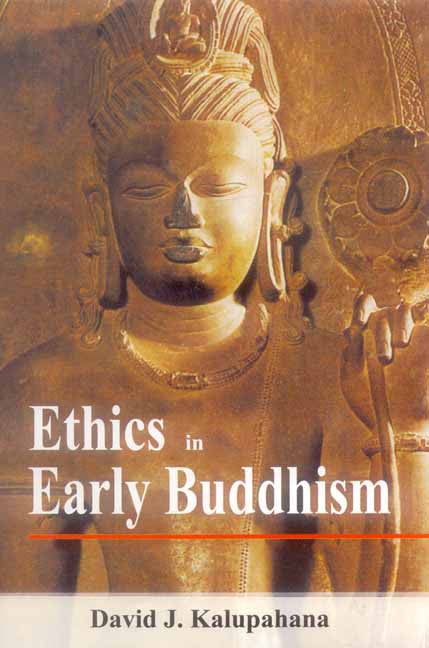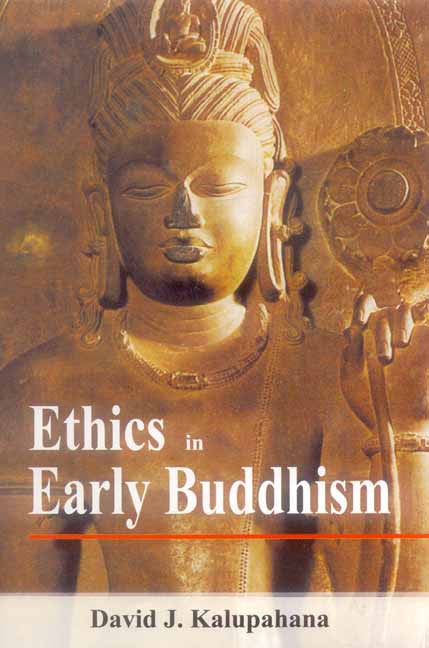Ethics in Early Buddhism
![]() 100% Genuine New Books
100% Genuine New Books
![]() Fast Shipping with Tracking Number
Fast Shipping with Tracking Number
Secure Payments via UPI, Cards & Wallets
![]() Trusted Support & Easy Returns
Trusted Support & Easy Returns
Ethics in Early Buddhism - Hardcover is backordered and will ship as soon as it is back in stock.
ISBN : 9788120832800, 8120832809
Year of Publication : 2008
Edition : 1st
No. of Pages : 171
Language : English
Condition : New
Publisher: Motilal Banarsidass Publishing House
Free shipping on orders over Rs. 249
Free shipping on orders over Rs. 249
We offer free shipping on orders above Rs. 249 in India. For orders below this threshold, a nominal shipping fee may apply, which will be clearly indicated during the checkout process.
How long will it take to receive my order?
How long will it take to receive my order?
The delivery time varies depending on your location. Generally, orders are processed and shipped within 1-3 business days. Once shipped, you can track and expect your order to arrive within 3-7 business days (the duration may vary depending on your location). For more information, please refer to our shipping policy.
Chat with a Real Person
Chat with a Real Person
WhatsApp chat is dedicated to assisting with after-sales queries regarding delivery, returns, and payments. Click below to initiate chat with us on WhatsApp:
[Bookstaa WhatsApp Chat].
For all other inquiries, please visit our customer support page or email us at support@bookstaa.com.
Couldn't load pickup availability
Description
Description
Throughout the centuries, moral philosophers, both Eastern and Western, considered a permanent and eternal law a necessary requirement for the formulation of a moral principle. If such a law was not empirically given, it had to be determined through reason. In contrast, early Buddhism presented a radical theory of impermanence. Interpreters of early Buddhism have been unable to abandon the presupposition of permanence, however, and hence have persisted in viewing nirvana or freedom as a permanent and eternal state to be contrasted with the impermanent world of sensory experience and bondage. Ethics in Early Buddhism is David J. Kalupahana's balanced and brilliantly concise attempt to place the early Buddhist descriptions of the world of experience, the state of freedom, and the moral principle leading to such freedom within the framework of impermanence. Kalupahana begins by outlining the Indian philosophical background, particularly its deontological ethics and utilitarian traditions, and proceeds to analyze the presuppositions of these moral theories. A comprehensive description of the moral teachings of early Buddhism follows. Kalupahana goes on to demonstrate the application of the moral principle in the explanation of society, economics, politics, law and justice, and nature. The conclusion highlights the two most important metaphors used in early Buddhist discourse: the stream (of freedom).
Review(s)
About the Author(s)
David J. Kalupahana is professor of philosophy at the university of Hawai'i.
About the Publisher

Motilal Banarsidass Publishing House (MLBD)
Motilal Banarsidass Publishing House, popularly known as MLBD, is one of the oldest and most prestigious publishing houses in India, established in 1903.
With over a century of legacy, MLBD has been at the forefront of publishing scholarly works in the fields of Indology, Sanskrit, philosophy, religion, spirituality, yoga, Buddhism, and Jainism.
Renowned for its authenticity and academic rigour, MLBD's books are trusted by researchers, scholars, and readers across the globe.
With more than 5,000 titles in circulation, MLBD continues to uphold its commitment to preserving and promoting India’s rich cultural and philosophical heritage.
Bookstaa is an authorized distributor of MLBD books, ensuring 100% genuine and original publications for our readers.

